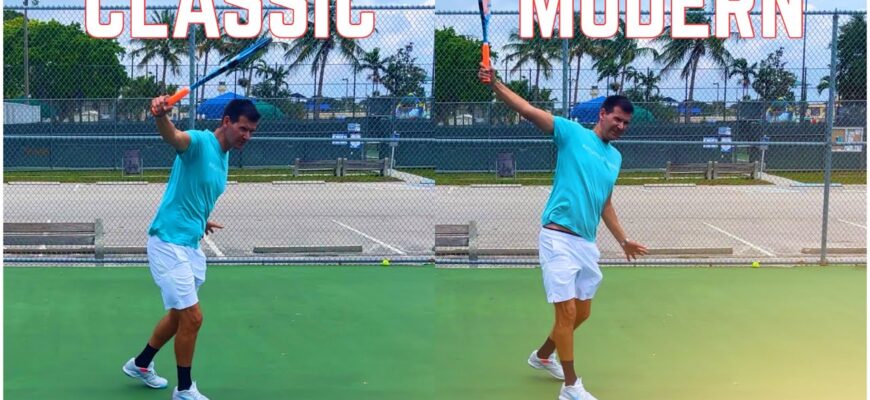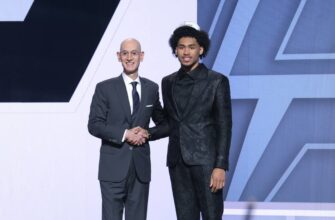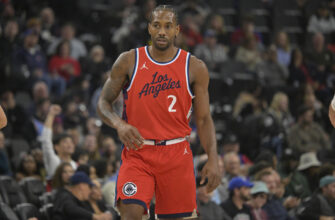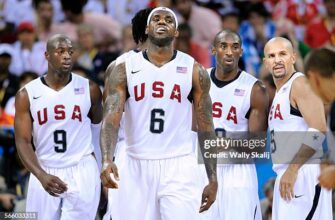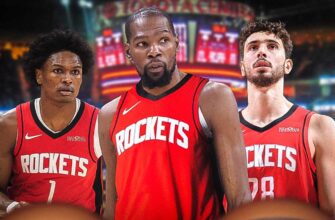Elite professional tennis coaching demands a diverse skillset. Technical expertise, strategic thinking, interpersonal abilities, and motivational prowess are all essential.
While older generations might view coaches as strict authority figures, this authoritarian style is ineffective with today’s athletes.
Marta Kostyuk, who describes herself as passionate and expressive, was astonished when she began working with Sandra Zaniewska in the summer of 2023.
Kostyuk explained, “In the past, when I displayed what some might consider negative behavior, my coaches would immediately shut it down. They wouldn’t try to understand my feelings, have a conversation, or simply let me experience my emotions.”
“Sandra was different. She allowed me to be myself, and I thought, ‘This is next-level coaching. I’ve never experienced this before.’”
The key is listening.
Zaniewska shared last month, “It’s fundamentally about the player. They are the ones on the court, hitting the ball, competing. A coach’s role is to listen intently to gain comprehensive insight from the player. We can never truly feel what they experience on the court. Our only way to help is to listen as they articulate their feelings.”
“Just listen and try to understand. Without that understanding, a coach is powerless.”
This philosophy of attentive coaching is central to several successful player-coach partnerships in professional tennis. We will examine three prominent examples:
Peter Ayers/Emma Navarro
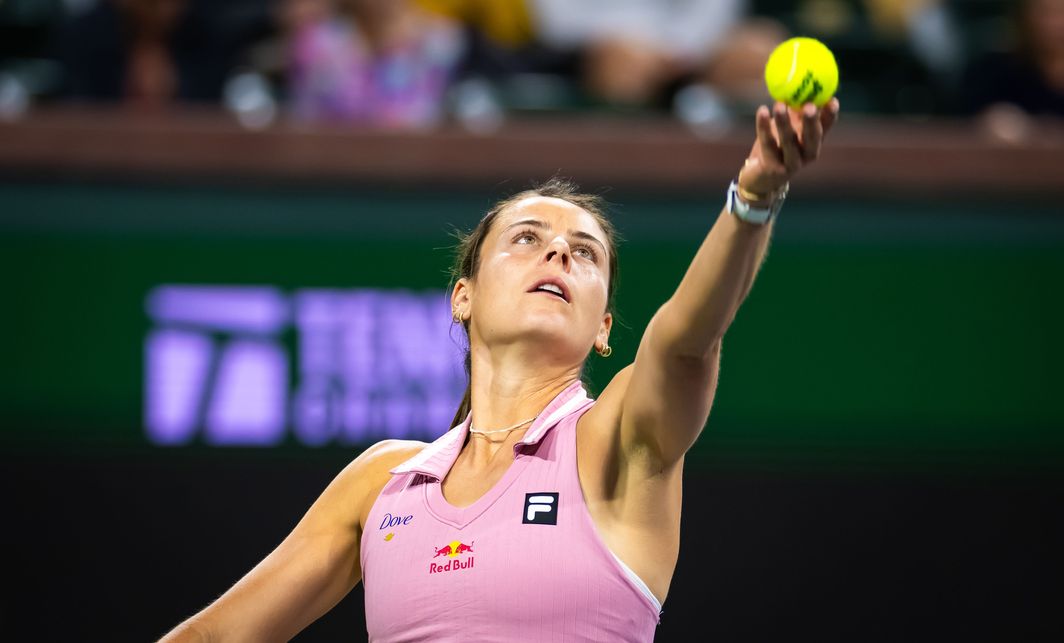
Peter Ayers and a 14-year-old Emma Navarro first met nine years ago at the LTP Tennis Academy in Charleston.
“Her natural talent was evident immediately – her eye-hand coordination, her repeatable ball-striking,” Ayers recalled. “And her dedication to improvement, her enjoyment of spending hours on the court, just playing tennis.”
Ayers, a former Duke University tennis player, transitioned to coaching after his professional aspirations shifted. He described their evolving relationship:
“We often discuss the shift from directives to perspective. Initially, with younger players, coaching is directive-based. I had a vision, communicated it, and guided her, with her trust in my direction being crucial.”
“As the player develops, it becomes less about directives and more about offering my perspective. She is now the driving force. I am incredibly proud of her and our collective progress in transitioning from a mentor-mentee dynamic to a relationship between young adults.”
Like any long-term relationship, they faced challenges.
“Absolutely,” Ayers admitted. “Disagreements are inevitable when guiding a young person’s development. You want them to grow, to become independent, which naturally tests the relationship.”
“Ultimately, this journey must become hers, a path she chooses, not one imposed upon her.”
And so it has for Navarro. After a year at the University of Virginia, where she won the NCAA singles title as a freshman, she transitioned seamlessly into professional tennis. Navarro concluded the 2024 season ranked No. 8 and was recognized as the WTA’s Most Improved Player of the Year.
“Being in the Top 10 brings a new kind of pressure,” Navarro noted. “Facing opponents with less pressure, who have nothing to lose, is a different dynamic. I’m focused on managing this new position.”
Ayers, now in his tenth year coaching Navarro, remains by her side. He avoids setting specific targets, stating, “We have dreams, she has big dreams. But ultimately, success is defined by her becoming the best player she can be, and me supporting that journey.”
“We value our shared history, the hard work, the wonderful and challenging moments. We appreciate everything and take nothing for granted, respecting everyone in this competitive environment.”
Conchita Martinez/Mirra Andreeva
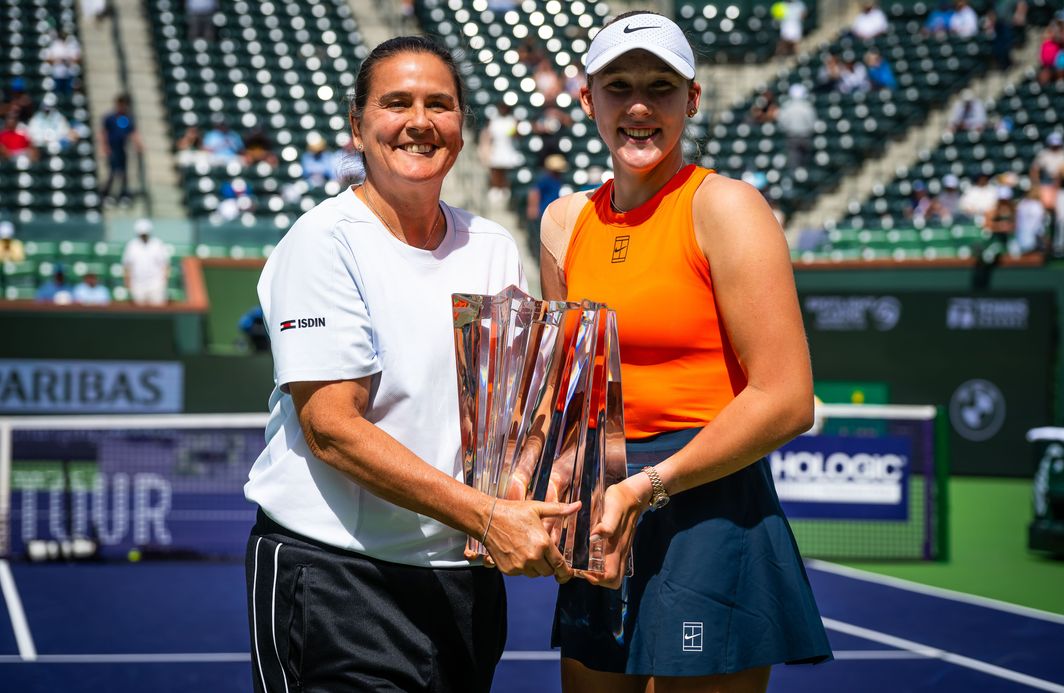
Initially, when Martinez and the then 17-year-old Andreeva began working together last April, there was a distance, especially after losses.
“I was trying to cope on my own,” Andreeva explained. “I wouldn’t look at her or listen. I wanted to do it all myself. But after a few matches, I realized that wasn’t working. I hired her for a reason.”
“At first, I had to force myself to make eye contact, ask for advice. Now, I don’t even need to ask. She proactively shares her insights. We agreed she would always tell me what she observes and thinks.”
This honesty is mutual.
Martinez explained, “Ideally, you cultivate a relationship where she feels comfortable being completely open, knowing I won’t judge. It’s important for her to express her feelings, and for me to understand them. I won’t just dictate; I recognize when she’s serious or just resistant.”
“She’s very forthright.”
They are focusing on all aspects of Andreeva’s game – baseline play, serving, volleys – often through doubles practice. Like other young players, Andreeva is strong defensively but needs to be more aggressive, utilizing her speed and power to approach the net more.
Before each match, they discuss Martinez’s tactical suggestions for about 15-20 minutes. This approach has been successful, with Andreeva winning 13 out of 16 matches this year.
Listening, even to a young, relatively inexperienced professional, is crucial. And it’s reciprocal. After Andreeva’s Dubai title win, following media engagements and recovery, they had dinner. Both were excited and eager to share their perspectives on the final.
Martinez typically maintains a calm demeanor during matches, but Andreeva revealed she was initially nervous.
“The start wasn’t ideal, 0-2, 0-30,” Andreeva recounted. “She thought, ‘Hmm, not the best start. Let’s see how this goes.’ But then her nerves calmed down and she felt better.”
Martinez expressed immense pride in Andreeva, who in turn thanked Martinez for her unwavering support in Dubai.
What is Andreeva’s potential?
“She’s already exceptional, isn’t she?” Martinez smiled. “We’ll progress step by step. We need to work diligently and ignore distractions. We’ll keep striving for improvement in every area.”
Sandra Zaniewska/Marta Kostyuk
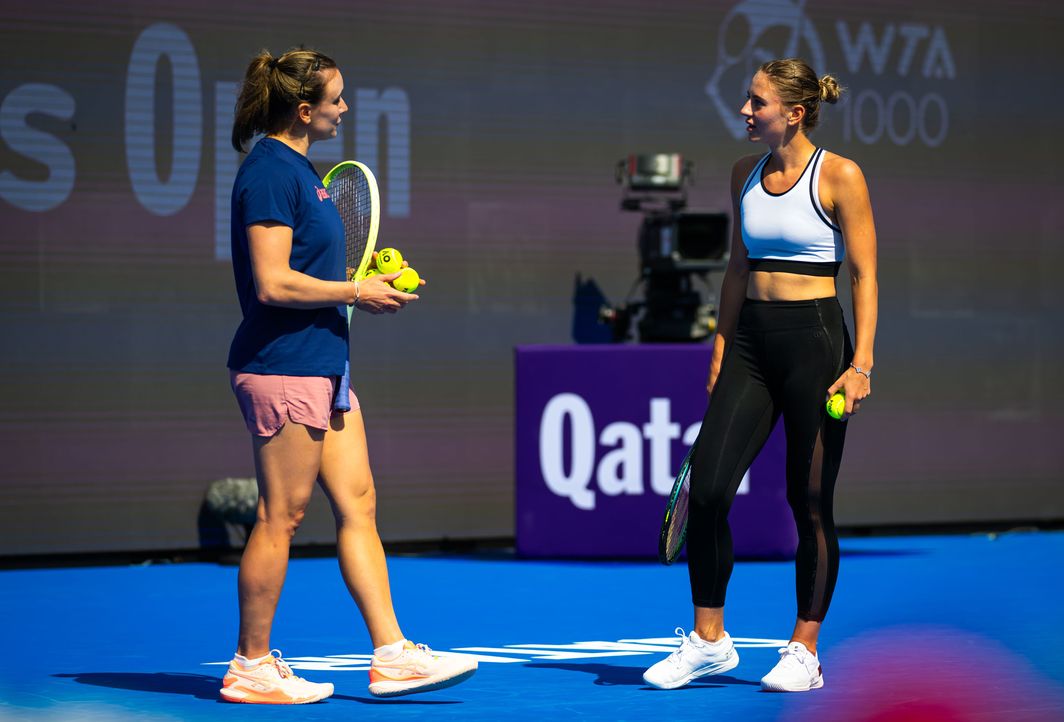
Coaching a new player involves a comprehensive assessment. For Zaniewska, this began after Wimbledon 2023, when Kostyuk was ranked No. 34.
“I watched several matches, analyzed her game deeply, identifying potential areas for development,” explained Zaniewska, a former professional player. “After my analysis, I discuss with the player: ‘How do you perceive your game? What’s your vision for your best tennis, both now and in the future?’”
“I consider three perspectives: my analysis, her current self-assessment, and her future aspirations. My goal is to align these, creating a plan to help her reach her objectives.”
Kostyuk presented a unique challenge, already possessing a full range of shots at 22. Zaniewska initially felt Kostyuk hit too flat, leading to excessive unforced errors. Kostyuk, naturally aggressive, disagreed. They found a compromise.
A primary focus was managing Kostyuk’s on-court emotions.
“Marta achieved remarkable early success, winning the Australian Open juniors at 14 – an incredible feat,” Zaniewska noted. “This created high expectations, both externally and internally, which perhaps weren’t always met.”
“When expectations aren’t met, doubts can arise. ‘Am I no longer improving? Am I not good enough anymore?’ She has navigated these challenges. Now, there’s a greater sense of stability. It’s about listening with empathy and understanding.”
Kostyuk has one WTA title from Austin two years prior, but has shown consistent progress under Zaniewska. She reached two WTA 500 finals last year in San Diego and Stuttgart, her first Grand Slam quarterfinal at the Australian Open, and her first WTA 1000 semifinal at Indian Wells.
She describes her relationship with Zaniewska as “professional,” adding that they enjoy a good rapport off-court.
“However,” she said, “it’s a delicate balance – being friendly while maintaining structure and hierarchy. Like everyone, we face ups and downs. It’s not always perfect.”
“Effective communication is crucial in any relationship, whether professional or personal. It’s the key to success. And I believe we’re doing well in that regard. I’m excited about what we can achieve together.”

